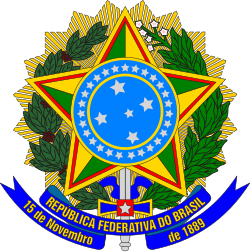| This article is part of a series on the |
 |
|---|
|
Recent elections |
Related topics |
This is a list of criminal gangs in Brazil, of Brazilian or foreign origin.
| This article is part of a series on the |
 |
|---|
This is a list of criminal gangs in Brazil, of Brazilian or foreign origin.
Amigos dos Amigos (Friends of Friends) – operates in Rio de Janeiro. It began in 1998 when a member of § Red Command was expelled from the organization for ordering the murder of another member. The gang's main rivals are Red Command and § Pure Third Command. ADA controls many drug selling points in the North and West zones. [1]
Comando Vermelho (Red Command) – engaged primarily in drug trafficking, arms trafficking, protection rackets, kidnapping-for-ransom, carjacking of armored trucks, loansharking, irregular warfare, narcoterrorism, [2] and turf wars against rival criminal organizations, such as § First Capital Command and § Terceiro Comando Puro . [3] [4]
Crime Syndicate of Rio Grande do Norte [ pt ] (RN; SDC; 18.14) – the largest criminal organization operating within the prisons and drug trafficking strongholds of Rio Grande do Norte state. Like other organizations in the North and Northeast Region of the country, it was created in reaction to the control exercised by the § First Capital Command (PCC) over drug trafficking activities. [5] [6]
Escritório do Crime [ pt; fr; es ] (Crime Office) – a criminal militia of gunmen and elite killers that operates in the West Zone of Rio de Janeiro [ pt ] which grew out of land grabs and illegal real estate operations in construction, sale, and illegal rentals. [7] [8] Their chief activity is murder for hire. [8] The group is composed of military police and former police.
Família do Norte (Northern Family) – a criminal faction that occupies northern Brazil and some regions in Colombia, Peru and Venezuela. [9]
First Capital Command (First Capital Command ) – Latin America's largest drug gang, and one of the world's largest with 40,000 members and 60,000 "contractors", with links to other South American and European countries, including ties to § 'Ndrangheta in Italy, and expanding into West Africa. [10]
Guardiões do Estado (Guardians of the State; GDE) – a Brazilian criminal gang operating in the state of Ceará. It is the 4th largest gang in Brazil and is made up mostly of teenagers and young adults. [11]
'Ndrangheta – an Italian crime gang dating to the 19th century, operating in Brazil since the 1970s, and allied with First Capital Command since the 2010s for supplying cocaine to the European market. [12]
Terceiro Comando (Third Command) – founded in the early 1980s as a break-away faction of the § Red Command, Terceiro Comando dominated drug trafficking in Rio de Janeiro, and engaged in bank robbery and drug-trafficking. [13]
Terceiro Comando Puro (Pure Third Command) – a Rio de Janeiro group that split off from § Terceiro Comando in 2002 due to disputes about TC's affiliations with the § Amigos dos Amigos gang. TC weakened while TCP strengthened and eventually absorbed its parent group's members. Primarily involved with drug trafficking. [14]
Triad – a Chinese mafia group operating worldwide, including in Brazil. In São Paulo, they run protection money rackets, with shopkeepers in central Sao Paulo threatened with kidnapping and assassination if they fail to comply. They also have a presence in Recife and Pernambuco. [15] [16] [17]